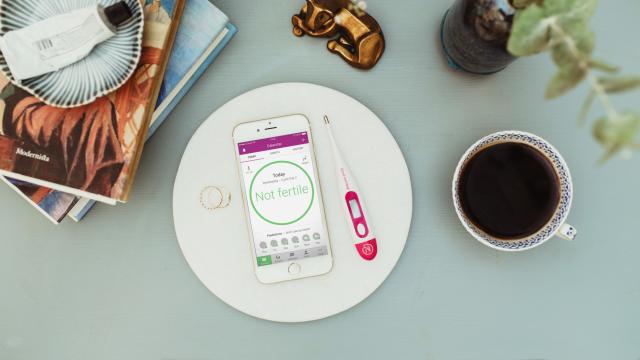Natural Cycles, an app that uses an algorithm to predict fertility, has a thorny past when it comes to unwanted pregnancies. And the UK’s advertising watchdog just upheld a ruling that the digital birth control’s Facebook ad from last year is misleading.
On Wednesday, the Advertising Standards Authority (ASA) banned Natural Cycles from running the Facebook ad.
The post, which the ruling states was seen in July of last year, stated that “Natural Cycles is a highly accurate, certified, contraceptive app that adapts to every woman’s unique menstrual cycle,” according to the ruling. “Sign up to get to know your body and prevent pregnancies naturally.” The ASA also notes that there was a video beneath the text that said that “Natural Cycles officially offers a new, clinically tested alternative to birth control methods”.
The ASA ruled that the combined claims that Natural Cycles is both a “highly accurate contraceptive app” and “clinically tested alternative to birth control methods” are misleading. The British watchdog consulted experts and reviewed published papers on data collected from the app, and while it noted in its ruling that Natural Cycles could be used as an effective form of birth control, it found the combined characterisations deceptive.
“We respect the outcome of the investigation by the UK Advertising Standards Authority (ASA) into one Facebook advertisement,” a Natural Cycles spokesperson told Gizmodo in an email, noting that the ad ran for about four weeks last year, and the investigation started about a year ago. The spokesperson said the company took down the ad right when it was informed of the complaint.
“This investigation triggered an internal review of all our advertisements and the way that we communicate more broadly, to ensure our message is clear and provides women with the information they need to determine if Natural Cycles is right for them,” the spokesperson said.
They also added that every ad “now undergoes a strict approval process by a dedicated taskforce to ensure that it gives an accurate overall impression to the viewer. We actively seek feedback from Natural Cycles users to help us improve the quality of our communications and, moving forwards, we plan to work even more closely with HCPs, women and our user community to test and refine our marketing approach.”
Natural Cycles said that in its clinical trials it had a typical-use success rate of 93 per cent and a perfect-use success rate of 99 per cent, according to the ruling.
For those using the app as a way to prevent pregnancy, a woman needs to take her body temperature every day before she’s sat up in bed, as TechCrunch reported, and the data has to be inputted correctly, to the two digits past the decimal point. This is what Natural Cycles entails for perfect use of the app — any diversion from that, and the success rate can drop.
So while a 99 per cent efficacy rate falls closely in line with other effective birth control methods, such as IUDs, condoms and the pill, there appears to be much more room for human error.
But the ASA isn’t ruling that Natural Cycles shouldn’t advertise that it can be used as a form of birth control — it’s ruling that it should be clearer about its claims: The evidence doesn’t suggest that it is as reliable as other forms of birth control, and it shouldn’t be marketed as such.
And there are real-life consequences to that deception. Most egregiously, 37 out of 668 women who went in for an abortion at a hospital in Stockholm over a four-month span last year had been using the Natural Cycles app as their contraceptive measure, The Guardian reported. The hospital reported the app to Swedish authorities.
For those looking for a non-hormonal and less invasive form of contraception, there are still indicators that Natural Cycles isn’t a totally unreliable option, if those who use it understand the gamble associated with imperfect use, and how it stacks up to other options.
The US Food and Drug Administration cleared the app this month, allowing it to be marketed as a digital birth control app. This is the first time a so-called medical device of this nature has been cleared by the FDA.
But, as is evident in today’s ASA ruling and the dozens of unwanted pregnancies last year, an FDA clearance and a convincing marketing strategy are not the gold standards for predicting the efficacy of birth control, and women must be aware of the risks.
